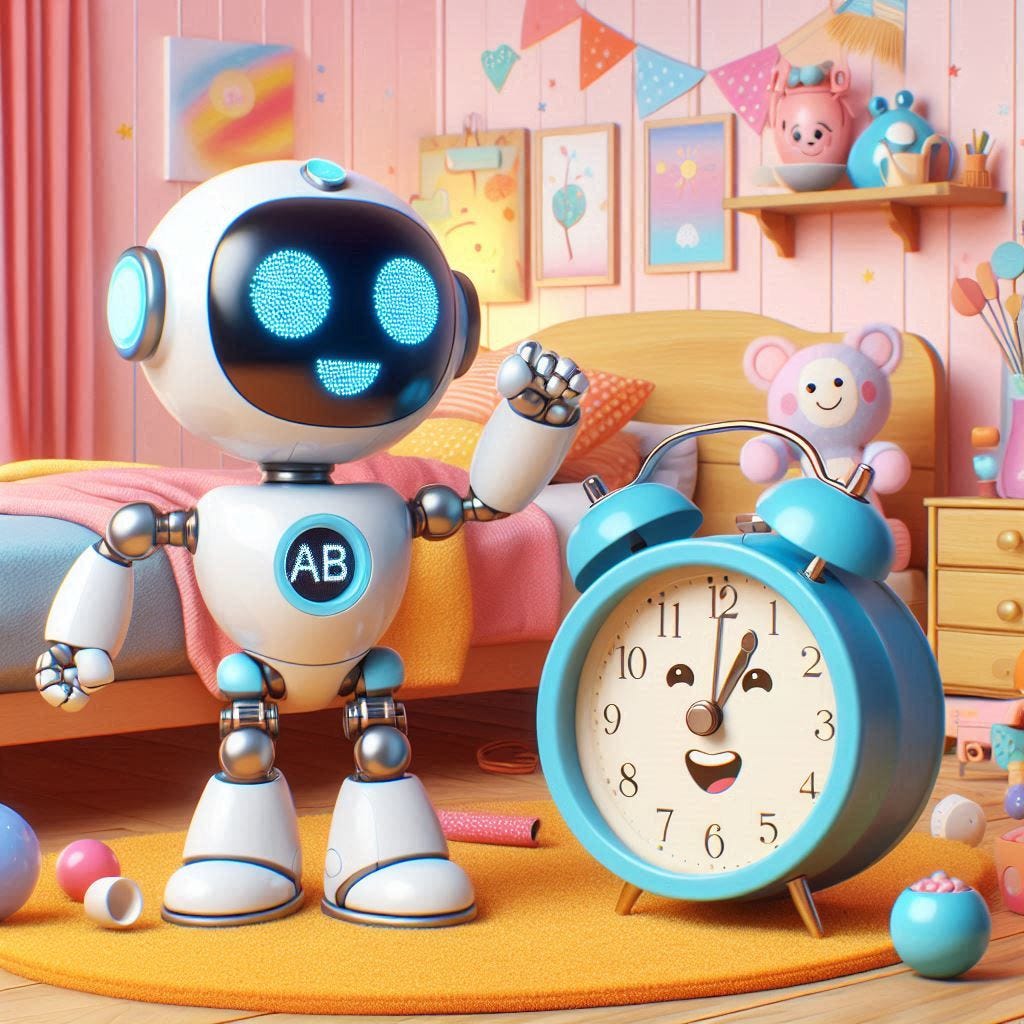AI versus Inanimate Objects: A Battle of Wits (Or Lack Thereof)
Why Artificial Intelligence is a Little Less "Artificial" than Your Average Toaster
Welcome, dear reader, to what is undoubtedly the most pressing philosophical question of our age: how does artificial intelligence measure up against a number of inanimate objects? Sure, AI can write poetry, solve complex algorithms, and beat you at chess in ways that crush your self-esteem. But can it ever compare to the quiet simplicity of a stapler or the stoic nature of a refrigerator? Buckle up, because we’re diving headfirst into this absurd comparison.
AI vs. Toasters: Who’s Hot, Who’s Not?
Let’s start with the humble toaster, the unsung hero of breakfast. A toaster does one job and does it wonderfully: it turns slices of bread into warm, crispy masterpieces. On the other hand, AI can write essays, generate memes, and even predict trends in pop culture. But let’s be honest, when was the last time GPT-4 served you a perfectly golden bagel? Exactly.
Toasters win in simplicity. They don’t need updates, don’t throw cryptic error codes, and definitely don’t ask existential questions about the meaning of rye bread. AI, however, has the uncanny ability to make you question everything—like why it keeps suggesting that your email should start with “Dear esteemed colleague” when you’re writing to your uncle.
AI vs. Staplers: Who Truly Holds Things Together?
Staplers are the glue (well, the metal) that holds our lives together. They don’t judge your inability to organize files or mock your terrible handwriting on meeting notes. They silently do their job, ensuring that loose papers stay united in solidarity.
AI, on the other hand, might “help” by organizing those files digitally—but oh, the passive-aggressiveness! “Are you sure you want to save this file as ‘document_final_final_FINAL_v3’?” Yes, AI, I am sure. While staplers never ask questions, AI loves to make you second-guess yourself. Advantage staplers: they know their role and stick to it—literally.
AI vs. Refrigerators: Keeping Cool Under Pressure
Refrigerators are champions of tranquility. They hum softly, keep your groceries chilled, and never complain that your milk expires tomorrow. AI, of course, can manage your grocery list and remind you to buy oat milk, but let’s face it, AI doesn’t know the first thing about condensation or freezer burn.
While refrigerators are dependable, AI is... unpredictable. Sometimes it offers brilliant solutions, and sometimes it insists that "potatoes" should be on your dessert menu. Refrigerators may lack innovation, but they’re masters of consistency. They don’t crash or “think” themselves into existential crises. A point for refrigerators, I say.
AI vs. Televisions: The Battle of Entertainment
Televisions are straightforward: they show you stuff. Whether it’s your favorite show, the news, or a commercial for that brand of cereal you swear you’ve never bought but always seem to see, TVs just do their thing without fuss.
AI, meanwhile, can curate content based on your preferences, write scripts, and even analyze why you binge-watch reality shows about competitive baking. But let’s not forget AI’s Achilles’ heel: it sometimes gets it wildly wrong. “Because you watched ‘The Great British Bake Off,’ we recommend ‘Chainsaw Repair Tutorials.’” Televisions would never betray you like this.
AI vs. Socks: A Surprisingly Deep Matchup
Ah, socks. The quiet warriors that shield your feet from the horrors of the outside world. Socks don’t compute, don’t analyze, and don’t offer unsolicited advice. They live in pairs (most of the time) and serve their purpose with understated elegance.
AI, on the other hand, has tried to revolutionize socks—with smart socks that track your steps, calories, and possibly your deepest secrets. But let’s be real: AI-enhanced socks are more likely to send you an error message than keep you warm. Socks remain undefeated in their simplicity and comfort. AI loses this round to cotton and wool.
AI vs. Alarm Clocks: The Wake-Up Call
Alarm clocks are brutally honest. They do one thing: wake you up. They don’t care if you’re tired, grumpy, or questioning your life choices; they’ll beep until you confront reality. AI might try to wake you up gently, offering personalized greetings like, “Good morning! It’s 7:00 a.m., and the weather in your area is delightful.” Sounds charming until AI starts suggesting you wake up an hour earlier to “optimize your productivity.”
Alarm clocks are straightforward. AI, however, has a tendency to overthink things. Advantage alarm clocks: they don’t care about your schedule; they just enforce it.
AI vs. Paperclips: The Underrated MVPs
Paperclips are tiny, but they wield immense power. They can fix documents, unclog glue bottles, and even serve as makeshift tools in desperate situations. AI, meanwhile, has never unclogged a glue bottle in its life, it’s too busy solving quantum equations or writing essays on medieval architecture.
Paperclips don’t need Wi-Fi, don’t crash, and don’t ask for a subscription fee. AI might be impressive, but can it hold together a crisis with the quiet dignity of a paperclip? I think not.
The Verdict
While AI dazzles us with its abilities, it’s clear that inanimate objects excel in their simplicity, reliability, and complete lack of existential angst. Toasters don’t question their purpose, socks don’t try to innovate, and paperclips don’t crash when you need them most. AI may be the genius in the room, but inanimate objects are the unsung heroes of everyday life.
So, the next time your AI assistant offers suggestions you didn’t ask for, take a moment to appreciate the toaster, the stapler, or the trusty alarm clock that just... gets it. In a world increasingly run by algorithms, let’s give a round of applause to the quiet, dependable inanimate objects. Because sometimes, simple is better—and way less complicated.









